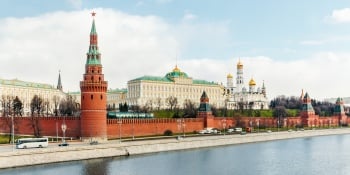Published: 19.01.2023

· The Grand Chamber of the European Court of Human Rights in Strasbourg has ruled that Council of Europe states have an obligation "to legally recognize and protect same-sex unions."
· The Grand Chamber upheld a contested 2021 ECHR ruling, which indicated that denying same-sex couples the opportunity to enter into "marriage," or at least a formal union, would violate Article 8 of the European Convention on Human Rights.
· The lack of legal grounds for forcing member states to formalize same-sex unions was pointed out in a dissenting opinion by Polish Judge Krzysztof Wojtyczek, who has been ruling at the Court for 10 years.
· The ruling paves the way for the gradual forcing of other European countries - not party to this dispute - to introduce single-sex formal unions with all the privileges inherent in marriage.
"This ECHR judgment is another example of an evolving interpretation of the law that creates new obligations sometimes in defiance of the text of the Convention. No provision of the Convention, including Article 8 cited by the Court, contains a single word on the obligation to institutionalize same-sex unions. On the contrary, Article 12 of the ECHR speaks of "the right of men and women to marry." Thus, the authors of the Convention were expressing the obvious truth that the only kind of formalization of a relationship was marriage between a man and a woman. Despite this, the Court in the Grand Chamber is imposing on more than forty countries of the Council of Europe a radical interpretation of the Convention, according to which Article 8 of the Convention mandates the institutionalization of same-sex unions." - Weronika Przebierała, director of the International Law Center of the Ordo Iuris Institute, stressed.
The case involved three same-sex couples who, at different times, made declarations of their willingness to enter into a "marriage" union at Russian registry offices. The declarations were denied by the authorities. The couples attempted to challenge the offices' decisions before the courts, but the courts upheld the decision, pointing out that neither domestic law nor international law imposes an obligation on the authorities to promote or support same-sex unions.
The first couple in 2010, and the second and third in 2014, filed complaints with the European Court of Human Rights in Strasbourg, alleging violations of their right to respect for private and family life (Article 8 of the European Convention on Human Rights). In their complaint, they demanded an award of 50,000 euros in compensation for the "non-pecuniary harm" they had suffered, as well as an additional 27,900 euros in reimbursement for alleged expenses for attorneys.
In the summer of 2021. The ECHR ruled that Article 8 of the Convention had been violated by the failure to formalize same-sex unions. The Court refused to award damages to the applicants, ruling that the finding of a violation alone was sufficient compensation for their harm.
The case then went before the Grand Chamber of the ECHR. In early 2023. The Grand Chamber announced its verdict, in which it reiterated by a 14-to-3 majority that the failure to institutionalize same-sex unions violates the right to respect for private and family life. The Grand Chamber reiterated the view expressed in 2021 that a same-sex couple is no different in substance from the union of a man and a woman, and therefore they should have similar opportunities to formalize their relationship. The Court said that Article 8 of the ECHR "obliges the State party [to the Convention] to ensure the legal recognition and protection of same-sex relationships by establishing a 'specific legal framework.'"
Judges from Poland (Prof. Krzysztof Wojtyczek), Slovakia (Dr. Alena Poláčková) and Russia (Mikhail Lobov) voted against such a ruling. Krzysztof Wojtyczek criticized the substance of the ruling, pointing out that there is no legal basis for forcing member states to formalize same-sex unions. The Polish judge stressed that Russia is no longer a member of the Council of Europe, so it is not affected by the ECHR's judgments. Instead, the ruling may have consequences for the 46 RE countries that were not party to the dispute. There is a danger that the judgment will be used to force the institutionalization of same-sex unions on countries whose constitutional order does not allow such a possibility and where there is no widespread acceptance of such solutions. Judge Poláčková further pointed out the irregularity of the panel of judges, which included Russian Judge Lobov, despite the fact that Russia was excluded from the Council of Europe on September 16, 2022. Russia was excluded from the Council of Europe.
"Although the ruling was formally addressed only to the Russian Federation, which is not even a member of the Council of Europe anymore, it paves the way for the gradual forcing of other European countries to introduce single-sex formal unions. It thus affects 46 countries that were not even parties to the issue. It is not surprising, therefore, that the experienced Polish judge Krzysztof Wojtyczek issued such a firm dissenting vote. One should be aware that a number of complaints have also been filed against Poland aimed at forcing our country to introduce formal unions or even same-sex "marriages." We intervene in all such cases as a friend of the court, presenting legal arguments pointing to the impossibility of deriving from Article 8 of the Convention an obligation to institutionalize same-sex unions." - Veronika Przebierała adds.
The case of Fedotova and others v. Russia, ECHR Grand Chamber judgment of January 17, 2023.

24.04.2024
Mysterious links, the Kremlin, Catholic fundamentalism – Polish pro-abortion activist Klementyna Suchanow continues her crusade against her country’s main pro-family, anti-abortion lawyers’ organization, the Ordo Iuris Institute.

19.04.2024
Although Russia exerts real and dangerous influence in the West, the traditional conservative Right is nevertheless being falsely accused of pro-Moscow activities. Among the methods most commonly used are:

09.02.2024
- The first reading of the civic bill "Yes to family, no to gender" is underway in the Sejm.
- This bill concerns consent to the denunciation of the Istanbul Convention and the creation of a Team for the development of the principles of the International Convention on the Rights of the Family

01.02.2024
- In December 2023, the European Parliament voted in favour of the European Commission's proposal to regulate the mutual recognition of parenthood in EU Member States.
- As a result of the adoption of this draft legislation, Poland would be obliged to recognise the legal validity of a document certifying same-sex parenthood.